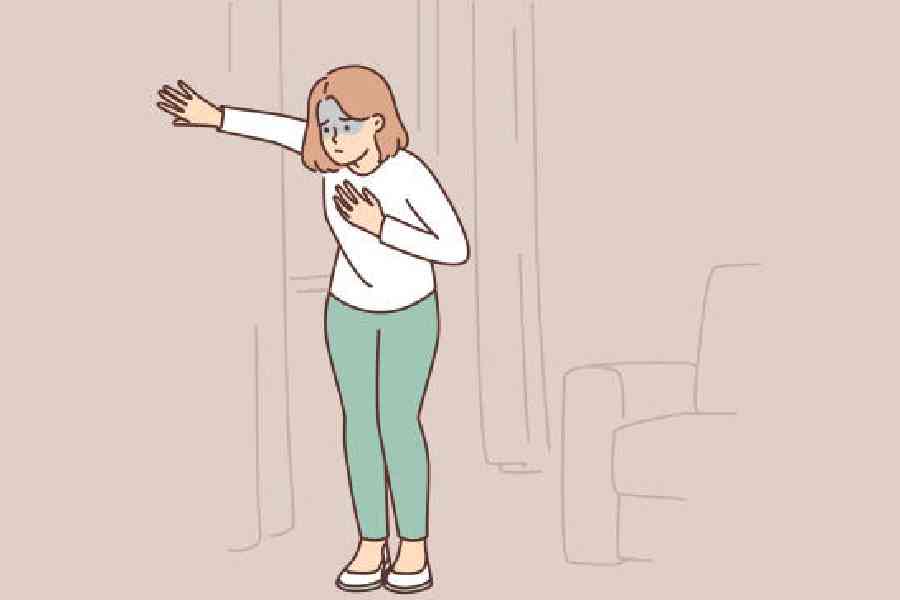Many people are down with fever, cold and cough and other respiratory ailments, doctors said.
A large number of people are suffering from upper respiratory tract congestion caused by air pollution, which increases during winter. A spike in air pollution also weakens the immune system and makes people vulnerable to infections.
Those suffering from respiratory ailments like chronic obstructive pulmonary disease (COPD) and asthma are being admitted to hospitals.
A low-grade fever, in the range of 100 degrees Fahrenheit, sneezing, cough and congestion in the upper respiratory tract are the most common symptoms of the viral infections prevalent now.
The Alipore Met office said dense fog was reported from many parts of Calcutta on Sunday morning. It led to a drop in visibility and Calcuttans out on the streets could see a haze hanging over the city.
"If visibility is less than 200m, it is called dense fog," said a Met official. A combination of moisture, clouds and light wind contributed to the formation of the fog, said a Met official.
Doctors and scientists working on air quality management said that given Calcutta's air quality readings, the fog contained a large concentration of pollutants.
At 5pm on Sunday, the air quality was "poor" at four monitoring stations in the city and "moderate" at the remaining three stations.
The air quality measured by a monitoring station at any point in time is an average of the quality of the previous 24 hours.
According to the National Air Quality Index, prepared by the Central Pollution Control Board, "poor" air can cause "breathing discomfort to most people on prolonged exposure" and "moderate" air causes "breathing discomfort to people with lungs, asthma and heart diseases".
Chandramouli Bhattacharya, infectious disease specialist at Peerless Hospital, said viral attacks might decline with a drop in the mercury but the air pollution-induced infections would continue.
"The air pollution is contributing to the current spate of infections in a big way. It weakens the natural immunity and makes people more vulnerable to infections," he said.
A Ballygunge resident who went to Sikkim in the last week of December is down with fever and cough. He said he did not fall sick while on vacation though the temperature dropped to 5 degrees Celsius but caught an infection after his return to the city.
Amitabha Saha, the director of critical care at Desun Hospital, said his clinic has seen a sharp rise in the number of patients with fever, nasal irritation and congestion.
Six patients with breathing problems are under treatment at the hospital. Three of them were still in the critical care unit.
"The most common symptoms are low-grade fever, cough and sneezing. The cough is persisting for seven to 14 days in some people, especially those with conditions such as COPD or asthma," said Saha. "Some, especially the elderly, need to be admitted to hospital."
Saurabh Maji, a pulmonologist and intensivist at the Rabindranath Tagore International Institute of Cardiac Sciences, said those with asthma or COPD are experiencing an exacerbation of their symptoms.
"Despite taking medicines, the symptoms are taking longer than usual to subside. Others are coming with complaints of nasal irritation, upper airway irritation and congestion in the upper airway," said Maji.
Saha said the fluctuations in temperature — warm days followed by a short interval of colder days and again a return of warmer days — are affecting people's general health.
"Temperature fluctuations help viruses replicate faster and infect more people," said Saha.











